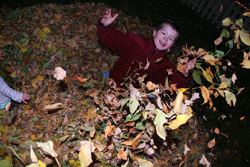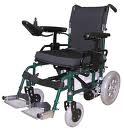Becky Dawson is a full time mother and educator for her son (8) and daughter (4). She is working on a Professional Editing Certificate from the University of California, Berkeley, and writes on the topics of special needs, interactions in the medical world, and her growth and interactions with her Maker as seen through Christian Orthodoxy.
I am an intimate spectator of suffering; yet the suffering often coexists with delight and beauty.
I am the mother of a boy who was diagnosed with a myclonic seizure
disorder at eighteen-months. White light, fluorescent lights, and sensory
overload trigger his seizures. He struggles with headaches and frustration. He
falls a lot and often hits his head. His knees are always covered with hues of
purples and browns like the color of prunes, and my boy is trapped, trapped
within the circumference of his eight-year-old brain. He has a wonderful
brilliance inside, but it seems the processing guard who stands between the
inside of Andrew’s brain and the outside world gets all the information mixed
up. This guard clearly is very disorganized as most of the words that come from
Andrew’s mouth are unclear or repetitive. The same disorganization impacts
Andrew’s hands. He cannot get them to do what he wants. He cannot write or draw
the way he wishes.
He has this amazing ability to point to all the correct
answers on a multiple-choice test no matter the subject, and almost always gets
90% correct, but most words that trickle from his mouth are jumbled and
slurred. So, in a world that only weighs intelligence through articulation and
writing, Andrew is considered unintelligible.
Andrew is delightful. He loves to play outside. If I could
bottle his laughter, I would sell it. He is drawn to beauty and constantly
reminds us of the beautiful mountains, trees, and flowers that surround us. He
calls his little sis, “Sweetheart,” and can be found often patting her back
when she is scared. If given a gift, he always asks for a second for his
sister, and I hear “I love you mom” several times a day.
Andrew does not see himself as disabled. We sent him to a
special needs summer camp, and he played with all the camper’s typical siblings
the entire week. When asked if he wanted to return the following year, he
shredded the camp’s brochure and put it in the trash. When he falls, he will
scream at me if I come to assist him. “I will handle this by myself, Mom!” He
gloriously speeds by on his recumbent trike and loves to quickly clench his
hand breaks, causing his bike to spin in a circle, giggling.
I too have felt trapped, trapped in a world of suffering. I
cannot decipher which is worse, rejection, or the daily physical pain. When his
head aches and he has been woken, crying several times the night before from
painful seizures, darkness frames his eyes and you can tell that it just hurts
to move. He is agitated and volatile and if exposed to loud noises and crowds
he often has to lie down for several hours to recover. The noise and movement
is difficult for him to assimilate and results in severe pain and discomfort. I
was once told that these children are daily martyrs. I think it’s true. As
Andrew engages and interacts with others, he has this way about him that quickly
burns away the trivialities of life that reveal the inner condition of one’s
heart. Some people respond with love and gentleness, while others spew
judgment, mistrust, and anger.
I am no different–I thrashed about for quite some time while
confined in my house. I was angry at what my life had become. I had been a
ladder-climber, success driven, and I was forced to put aside everything I
thought was important. I couldn’t work, sleep, run, hike, bike, or write. After
six years, I was broken and sobbing on the floor, mourning lost dreams, horrendous
nights, and loss of self. I felt like a slave. Towards the end of that night,
it occurred to me that I must either embrace my place in this world as servant
or continue to thrash (Matt 20:25-28).
To protect Andrew, our pace and environment had to be quieter
and move slower, and our diet had been severely restricted. I had to abstain
from many things that I thought I deserved or had a right to, and in this
abstinence, I began to develop an awareness of my spiritual state. I discovered
that I was walking in and amongst something holy. In light of suffering, there
is beauty in this metamorphosis that is occurring in me and in others who daily
engage our family. As I die to myself, I find and am realizing that I can only
be true and usable in this weak place, that anything outside of this state
subtly turns towards pride, fear, control, and selfishness. Occasionally I can
sense this hope-giving, patient love that bears all things.
**For an explanation of the title “Perfectly Human,” and to read the first entry in this series, click here.
To read all the entries in the series, type “Perfectly Human” into the search box in the upper right.


